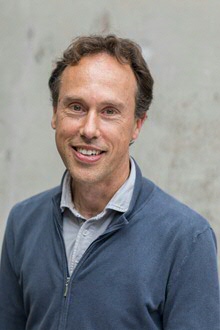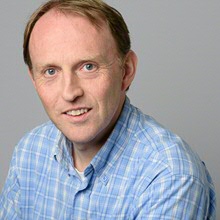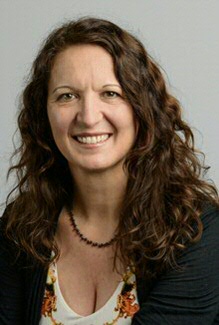Three ERC Synergy grants for Groningen researchers
The European Research Council has awarded three Synergy Grants to researchers at the Faculty of Science and Engineering (FSE). Prof. Dirk Slotboom receives a grant of EUR 2.1 million for the project 'GRAIL'. Prof. Sijbren Otto receives a grant of EUR 3.4 million for the project 'MINILIFE'. Prof. Elisabetta Chicca receives a grant of EUR 2.7 million for the 'SWIMS' project.
The ERC Synergy Grants enable interdisciplinary collaboration at the fundamental scientific level between multiple top researchers. They are the European Research Council's largest and most competitive grants.

Prof. Dirk Slotboom ( Groningen Biomolecular Sciences and Biotechnology Institute ) | project: GRAIL - Time-resolved imaging of membrane transporter dynamics under physiological ionic gradients
In this project (with a total funding of EUR 11.6 million), the researchers will—for the first time ever—gain a real-time insight into the workings of the molecular machines (membrane proteins) that are responsible for cells taking up substances from the environment. The resulting data will lead to entirely new insights into the fundamental biophysics of membrane proteins, as well as to a deeper understanding of the mechanisms that are required to, for example, better understand why mutations in membrane transporters can cause severe mental illnesses or how drugs act on a molecular level.
From the University of Groningen, Prof. Wiktor Szymanski is involved in the project, in addition to Slotboom. The project is coordinated by Prof. Arwen Pearson from the University of Hamburg.

Prof. Sijbren Otto ( Stratingh Institute for Chemistry ) | project: MINILIFE - Making life as we don't know it yet
Can life be created in a laboratory? And if so, can this be done using molecules that are very different from the molecules that are found in all current life forms? These are some of the questions that will be addressed in the project ‘MiniLife’ (total funding EUR 13 million). The project will build on Otto’s pioneering work on synthetic molecules that are able to self-replicate by copying themselves. The aim is now to integrate these molecules into cell-like compartments and to let the resulting cells grow, divide, and undergo Darwinian evolution. The result will be an entirely synthetic chemical system that approaches life closer than any other such system to date, but that differs from life as we know it.
The coordinator of this project is Prof. Andrew Griffiths from the University of Paris. The other partners in this collaboration are Prof. Eörs Szathmáry from the Parmenides Foundation (Germany) and Prof. Gonen Ashkenasy from the Ben-Gurion University of the Negev, Israel.

Prof. Elisabetta Chicca ( Zernike Institute for Advanced Materials) | CogniGron | project: SWIMS - Transforming IoT Sensory Systems for a Sustainable Future
SWIMS is revolutionizing the landscape of smart wireless multimodal sensory systems. By embracing bio-inspired design principles, SWIMS is reshaping hardware to achieve exceptional energy efficiency, particularly in event detection and communication. This project is pivotal for the sustainable deployment of billions of Internet of Things (IoT) nodes, promoting smart economy and societal growth with minimal environmental impact and energy consumption. The collaborative effort of four leading researchers, UG professor Elisabetta Chicca in collaboration with profs. Fettweis (TU Dresden), Flandre (UC Louvain), and Ionescu (EPFL), has given rise to an innovative end-to-end stochastic analog spiking* neuromorphic concept for SWIMS nodes. It addresses challenges in sensor spiking signal generation, processing, and communication, drawing inspiration from nature. The project SWIMS will be funded with 13.5 million EUR in total under the Synergy program.
[*The concept of spiking neural networks mimics the operations of brains by integrating the memory (i.e. the synapse in the brain) and processing units (i.e. the neurons in a brain) in proximity]
More news
-
17 February 2026
The long search for new physics
-
10 February 2026
Why only a small number of planets are suitable for life
